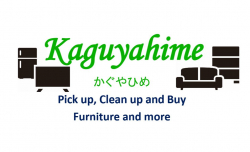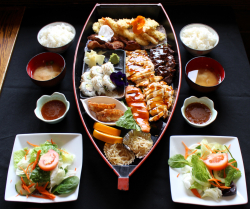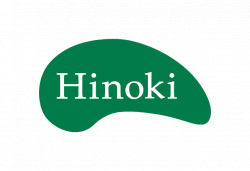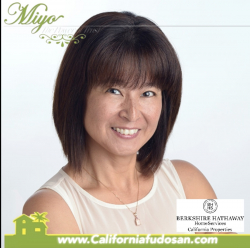Info Type
View Option
Sort by Category
Show all from recent
| 81. | Can I use American washer&dryer in Japan?(10kview/16res) | Problem / Need advice | 2022/04/14 11:58 |
|---|---|---|---|
| 82. | Children's vaccinations(2kview/3res) | Question | 2022/03/22 08:47 |
| 83. | Those using Spectrum's wifi.(1kview/1res) | Problem / Need advice | 2022/03/17 17:44 |
| 84. | Please tell us - temporary return to Japan(1kview/4res) | Other | 2022/03/03 08:34 |
| 85. | If you want to buy new, buy a Tesla or BMW Hybrid ...(37kview/211res) | Free talk | 2022/03/02 12:38 |
| 86. | How to open a bank account in Japan ?.(10kview/8res) | Problem / Need advice | 2022/03/02 10:48 |
| 87. | About Car License Plates(11kview/29res) | Problem / Need advice | 2022/03/01 22:20 |
| 88. | bar with female companions for male customers(3kview/3res) | Nightlife | 2022/02/28 15:53 |
| 89. | Where you can buy beef tongue.(14kview/69res) | Question | 2022/01/29 20:05 |
| 90. | Chain supermarket prices(4kview/11res) | Free talk | 2022/01/23 22:55 |
Can I use American washer&dryer in Japan?
- #1
-
- 緊急
- 2022/04/10 15:58
I am moving to Japan and was wondering if you know if the "washing machine and dryer"
I bought last year will work in Japan?
It is large enough to wash Comforter.
Japanese houses are spacious and have solers, so we don't have to worry about taking up space or electricity costs.This text has been translated by auto-translation. There may be a slight difference between the original text and the translation. (Original Language: 日本語)
- #6
-
- 倍金萬
- 2022/04/11 (Mon) 09:17
- Report
You are moving to a new residence in Japan, and you have a place to set up a fairly large washer/dryer that you will bring back with you even if you have to send it separately.
If so, the only thing you need to worry about is getting electricity, gas, and water. The gas and water are just new piping and can be left to the contractor. The remaining "electricity" is only 10% of the voltage supplied to Japanese homes, which is 100V, whereas the voltage of home appliances here is 110V/220V, but the electric appliances will not work properly due to this difference.
Either way, the voltage needs to be boosted and this cannot be done by amateurs. In some cases, the wiring may have to be done from a utility pole on the street outside. Aside from the cost concerns, the installation itself will be no problem. All in all, ask your friends who live in Japanese houses.
If you are moving to a residential complex in Japan, the above installation may not be possible from the beginning.This text has been translated by auto-translation. There may be a slight difference between the original text and the translation. (Original Language: 日本語)
- #7
-
- 引っ越し業者
- 2022/04/11 (Mon) 11:21
- Report
Assuming that it is the latest equipment
I don't understand why you are asking this question as it is so obvious, but it is possible to use it although it is subject to installation work on the house sideThere are many people who bring it home with them
But they don't turn off all the lights while they are doing laundry
The installation cost will be huge depending on the power consumption of the equipment they bring back.The construction cost will be huge depending on the power consumption of the equipment you bring back, so you have to check the Japanese side of the house.
By the way, # 6 above mentioned
> The voltage supplied to Japanese houses is only 10% of 100V, while it runs on 110V/220V, but electric devices do not run properly due to this difference.
when are you talking about? ? nowadays, the equipment is equipped with an inverter, so a difference of 10% or so is fine. Ignore the above opinion.This text has been translated by auto-translation. There may be a slight difference between the original text and the translation. (Original Language: 日本語)
- #8
-
- 昭和のおとっつぁん
- 2022/04/11 (Mon) 16:12
- Report
EDION, Matsuya Denki, Joshin, Nojima, Yodobashi Camera,
Best Denki, Kojima, Yamada Denki, Bic Camera, Nojima,
Inquire.This text has been translated by auto-translation. There may be a slight difference between the original text and the translation. (Original Language: 日本語)
- #10
-
- 倍金萬
- 2022/04/12 (Tue) 09:32
- Report
> Today's devices have inverters, so a difference of about 10% is fine
inverter noun [electrical] inverter < a device that converts DC to AC >
An inverter is a device that converts DC12V power from automobiles and other ( converting ) 100V/120V AC inverts for household usedevice or circuit.
There was a discussion in another topic about whether a 100V powered "Electric Rice Cooker" brought from Japan could be used here in the U.S. The current electric rice cookers do not directly run 100V/120V AC to the heating coil, but rectify AC to DC and then run it through a stabilizing circuit before being converted to IH. The current electric kettle does not even shake when the input AC voltage fluctuates greatly.
On the other hand, the electric circuits of large white home appliances such as washing machines ・ dryers ・ and refrigerators discussed here use large amounts of electric power for motors, pumps, electric heating elements, etc. Therefore, if a circuit to control large currents with 100V ~ 120V AC is built in, the selling price will go up dramatically, which is a realistic possibility. Therefore, it is not realistic to incorporate a circuit to control large currents without changing the 100V120V AC voltage. Therefore, in the case of this topic, if you use 120VAC input appliances with 100VAC in Japan, there is a possibility that they will not work properly. Well, you can try it one way or the other. This text has been translated by auto-translation. There may be a slight difference between the original text and the translation. (Original Language: 日本語)
- #11
-
- 倍金萬
- 2022/04/12 (Tue) 09:51
- Report
↑
For the time being, you can try to connect them as they are without any modifications, and if they cause any problems, you can take countermeasures.
Since it is connected to the one with lower voltage, it is not likely to generate heat from the circuit or catch fire.
You might say that the dryer is not fully dry after some time. If that's the case, just try turning it a little more.This text has been translated by auto-translation. There may be a slight difference between the original text and the translation. (Original Language: 日本語)
Posting period for “ Can I use American washer&dryer in Japan? ” has been closed.
Please create new topic to continue the same topic.
- Find local business with Town Guide
-
- Residential ・ Investment ・ Commercial ・ ...
-
Residential ・ Investment ・ Commercial ・ We are here to help you with real estate property sales and management ! Business Area : Orange County and nearby Los Angeles County, Riverside County, and Las...
+1 (866) 966-3217HomeSmart / Team Ichiro
-
- 💛Furniture ・ Home appliances ・ Scrapped ...

-
We will pick up "anything" and "everything" such as furniture, electrical appliances, and other household goods ・ buy ・ dispose ・ of them. We offer a convenient and economical pickup ・ service that re...
+1 (424) 201-9975Kaguyahime / かぐやひめ(不用品回収・買取)
-
- Orange County's popular Japanese cuisine...

-
We at Kyoto Japanese Cuisine have a young and talented chef, friendly customer service, upscale sushi bar menu items, and a large selection of sake, beer, and wine. Enjoy our wide selection of sake an...
+1 (714) 724-7499Kyoto Japanese Cuisine
-
- Our educational goal is "to think, decid...

-
A charismatic math teacher with 18 years of experience as a principal at an educational institution for overseas children has opened a classroom where you can leave your child with peace of mind. Wit...
+1 (949) 932-0858ひのき補習校・学習塾Hinoki
-
- I-20 Issuance ・ OPT Support ・ Affordable...

-
I graduated from ESL, but I want to study more in the U.S. ! But "the tuition fees for American universities are too high," "I'm not sure if I can get in with my language skills," "I'm worried about w...
+1 (949) 617-2006Rochester University
-
- The long-established restaurant is passi...

-
Kitakata Ramen is one of the three most popular ramen in Japan. Kitakata Ramen Bannai" is the most popular among them and is a long-established restaurant loved by many people. Please enjoy the tast...
+1 (714) 557-2947Kitakata Ramen Ban Nai - Costa Mesa
-
- Dr. Miwa Kanbe speaks Japanese. Please f...

-
We provide medical treatment that is as easy on your pet's body as possible, focusing on diet ・ Chinese medicine ・ and acupuncture. Dr. Miwa Kanbe speaks Japanese, so you can consult with her without ...
+1 (714) 494-1175Hemopet Holistic Care
-
- We are a psychiatric clinic where treatm...

-
We have Japanese speaking staff in our office, so please feel free to contact us in Japanese 🍵 In addition to pharmacotherapy, our clinic has been approved by the US Food and Drug Administration ( FD...
+1 (714) 867-7037Dr. Alejandra Suzuki, MD | Americas TMS Center
-
- Why don't you start learning ? From qual...

-
Orange County's first comprehensive Japanese American culture salon. Thanks to our 17th anniversary, you can find your ideal lesson from among 20 different types of lessons. Please use it as a place t...
+1 (949) 685-7120Orange Island Culture Salon
-
- Irvine Accounting Firm - U.S. and Japane...

-
Hiromi K. Stanfield, CPA, with 20 years of experience in the U.S. ・ Japan, holds a Master's degree in Taxation and has worked for a Big 4 tax audit firm, and is a California CPA assisting individuals ...
+1 (949) 281-1219Hiromi K. Stanfield, CPA Inc.
-
- The path to becoming a professional eyel...

-
Eyelash extensions are becoming more and more popular these days ! Why don't you learn the technique of eyelash extensions, which is becoming popular not only among Japanese people but also among Ame...
+1 (714) 708-2329beauteous Eyelash Extensions Academy
-
- Specializing in hybrid cars ( New & Used...

-
Our Costa Mesa store has a large selection of new ・ used hybrid cars, mainly Prius, in various variations. The store opened in February 2016 and is very clean. We also have a kids space so childre...
+1 (714) 592-1150Eco Drive Auto Sales & Leasing Inc (Costa Mesa Office)
-
- Car Accident ・ Contact us 24 hours a day...

-
If you are involved in a traffic accident, please contact us and our experienced attorneys with over 20 years of experience will guarantee your rights and provide you with all the support you need.
+1 (949) 999-2010The Law Office of Williams & Williams
-
- " Voted NO.1 Assisted Reproductive Medic...

-
Miracle ・ Angels ・ Reproductive ・ Group ( MARG ), ACRC's Japan office, is an agency specializing in assisted reproductive medicine, researching American, Japanese, and British assisted reproductive te...
+1 (949) 418-8146Angels Creation Reproductive Center Inc
-
- Experienced 18 year Irvine, Newport Beac...

-
Orange County, California, with its safe and pleasant climate, is a great place to live. From the famous Irvine with its excellent school districts to the beautiful towns and ocean view homes of Coron...
+1 (949) 922-5998Miyo Nishimuta / Berkshire Hathaway (California不動産)


